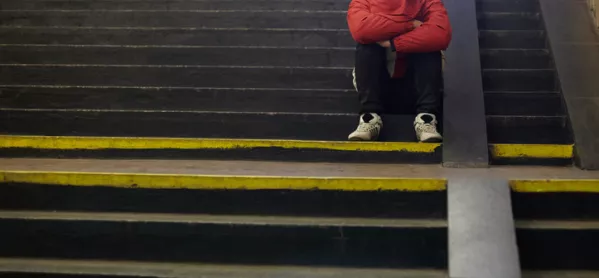- Home
- Has Boris Johnson ever experienced hunger?
Has Boris Johnson ever experienced hunger?

I like to think of myself as an independent, fair-minded and plain-speaking Northerner who gives credit where credit is due and who backs up my arguments with evidence.
I have previously written in praise of the Tory government’s intended policies on adult and further education and in criticism of the previous Labour administration’s lack of focus on and resources for technical skills and vocational education.
A unifying theme for my interventions, fuelled by my career-long passion for FE, has always been to try and see things through the lens of those less fortunate than me. I have an enduring concern to identify and understand the barriers to learning experienced by disadvantaged students and to seek to find workable solutions to these – an interest that led me to found the social mobility charity the Helena Kennedy Foundation over 20 years ago, and on which I write in detail elsewhere.
This week, I have found myself shocked, sickened and surprised by the government’s decision not to provide free schools meals for children in England over half-term – a decision I can only explain to myself as either a failure of political judgement or a failure of imagination. As I write this piece, three significant and separate movements are underway, all crying out for money to be found to tackle food poverty – one of the biggest barriers to learning that any learner can face.
Coronavirus: 1 in 10 young people has lost their job
Holiday hunger: Labour to push for new vote on free school meals
Opinion: 'Free school meals are a hand up, not a handout'
Firstly, there’s the inveterate and admirable Conservative campaigner MP Robert Halfon, chair of the Commons Education Select Committee, who, together with many northern Tory MPs in the so-called "red wall seats", has rounded on the government over its stance on free school meals this October half-term.
Coronavirus: The need to extend free school meals
Then there’s the chorus of thousands of Britain’s top child-health specialists who have joined forces to condemn the government’s refusal to take what – on the Covid scale of financial interventions – would amount to a small funding measure to ensure that disadvantaged children in England will be properly nourished whilst school is out.
Finally, there’s a spreading grassroots campaign on the issue led by the England footballer (and fellow Mancunian) Marcus Rashford, which has resulted in growing numbers of councils and businesses offering to provide free meals to children and young people who are going hungry.
For a government that has spent the pandemic crisis telling us that its decisions are informed by the science and based on data, it is ironic that ministers seem impervious to the voice of medical experts from the Royal College of Paediatrics and Child Health, who point to the evidence of the impact of hunger and malnutrition on children in their care who do not have enough to eat and who do not have access to a substantial meal outside of what is provided in school.
For a government that espouses a "levelling-up" agenda, is keen on keeping the kingdom united and is led by an Eton and Oxford-educated PM who nonetheless has (or had?) the knack of courting the popular vote, it seems politically curiously counterproductive to have allowed a vote to take place this week that pits the government at odds with decisions taken by the Welsh and Scottish governments and the Northern Ireland Executive to provide free school meals over half-term, many Tory-led local authorities who are following suit and an online petition set up by a celebrity footballer that has already attracted nearly a million supporters.
It certainly leaves many of us asking the question whether or not Boris Johnson or education secretary Gavin Williamson have ever had an experience of hunger, deprivation or poverty that has so disabled them that they could not fulfil their educational potential. Failure of political judgement or failure of imagination? Maybe the latter invariably leads to the former.
Ann Limb is the founder of the Helena Kennedy Foundation
Keep reading for just £1 per month
You've reached your limit of free articles this month. Subscribe for £1 per month for three months and get:
- Unlimited access to all Tes magazine content
- Exclusive subscriber-only stories
- Award-winning email newsletters
